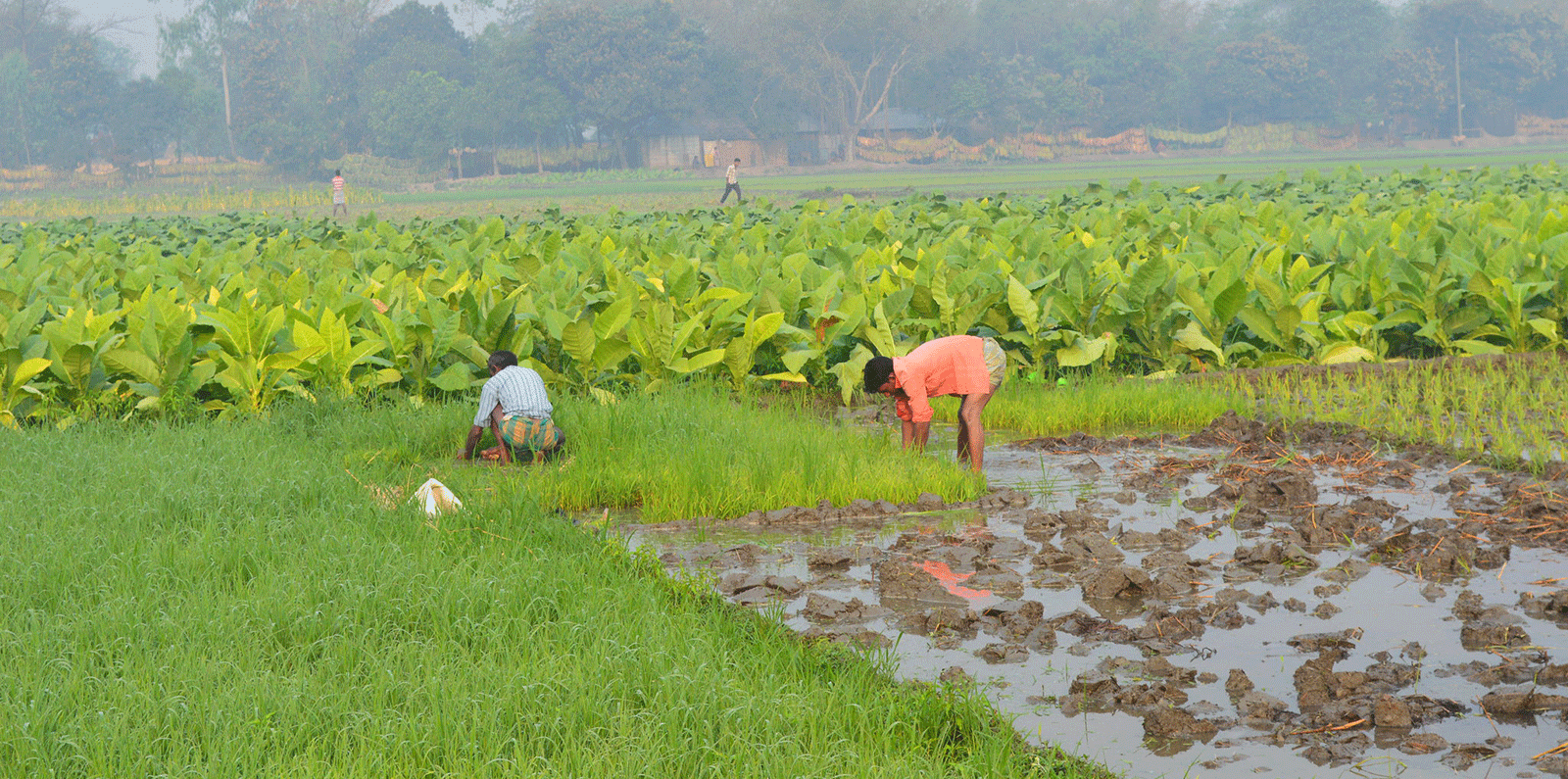Climate change poses a real threat to smallholder farmers, risking agricultural productivity, good nutrition, and livelihoods for millions around the world. In fact, climate change could force over 100 million people into extreme poverty by 2030, mostly through impacts on agriculture and food security. Many farmers are already seeing impacts from both extreme weather events, such as floods and heatwaves, as well as slow-moving events like soil erosion, rising temperatures, and changes in water supply.
These farmers are best placed to anticipate and respond to their unique circumstances – they just need the right support. The Global Agriculture and Food Security Program (GAFSP) finances locally-led agricultural development in many of the world’s poorest countries. We do this through a range of public and private sector tools, supporting climate-resilient interventions that help rural communities proactively adapt to changing circumstances.
Across our portfolio, we are seeing close to half of our projects and interventions are helping increase the resilience of the agricultural system.
Promoting Water-related Solutions
Improving water resources management –through better infrastructure, water use efficiency, soil management and agronomic practices– and support to community-based institutions helps build resilience to looming climate threats and increases adaptation capacity. We support countries that are working to implement efficient water-related solutions, for instance, in Kyrgyz Republic, the Agricultural Productivity and Nutrition Improvement Project (APNIP) is working with smallholder farmers to increase their agricultural productivity and food security by rehabilitating irrigation and drainage infrastructure on more than 10,100 hectares of land – this is enabling farmers and water user associations to improve their water management.
Improving Soil and Water Management
Diversifying agricultural products to drought or flood-resistant crops and adoption of water management practices, can help reduce soil erosion, restore biodiversity and ecosystems, and decrease greenhouse gases. In Bangladesh, we supported the Integrated Agricultural Productivity Project (IAPP), which worked with farming communities and partners from civil society organizations, academic institutions, and multilateral agencies to build knowledge and expertise on new varieties of crops and fish better suited for evolving climatic and environmental condition. IAPP introduced climate-smart agricultural technologies, agronomic practices, and crop varieties, and improved production packages that focused on resource use efficiency, yield gap minimization of rice-based cropping systems, reduction of irrigation requirements, and diversification into high-value or less water-intensive crops. This led to a 15 percent increase in income for crop farmers and 37 percent for fisherfolk over two years.
Strengthening Agricultural Research
Research is the best way to discover new methods and technologies that can help us adapt to climate change, particularly by working closely with local communities to identify solutions. For example, in Liberia, the Smallholder Agricultural Productivity Enhancement and Commercialization Project (SAPEC), works closely with CGIAR centers AfricaRice and the International Institute of Tropical Agriculture (IITA), and uses CGIAR’s research to promote the use of improved technologies for rice and cassava, such as climate change-resilient rice varieties and fertilizers.
Engaging the Private Sector
Engaging with the private sector, especially in early-stage agribusiness projects, connects smallholders to more sustainable and profitable development impacts. Our advisory services are supporting the Cadelga Group–one of the largest distributors of agricultural products and services in Honduras– to provide loans to smallholders in the form of fertilizer, seeds, and irrigation technology. As part of the loan, farmers receive training in crop diversification and upgraded irrigation techniques, which helps offset the effects of drought, limits emissions and boosts resilience in the face of climate change.
Developing and Sharing Risk Management Tools
Ensuring that farmers are equipped with the tools and skills they need for climate adaptation is critical. Risk management tools, like national grain reserves or weather insurance, can help. For example, the Climate Resilience Rice Commercialization Sector Development Program (Rice-SDP) in Cambodia will soon be launching a weather-based index insurance scheme to reduce risks associated with rice production and incentivize farmers to adopt modern production technology.
Our lives depend on the sustainable production of safe, healthy, and affordable food – a challenge exacerbated by a growing population, a global pandemic, and a changing climate. At GAFSP, we will continue to support our partners on the ground as they strengthen their resilience.
